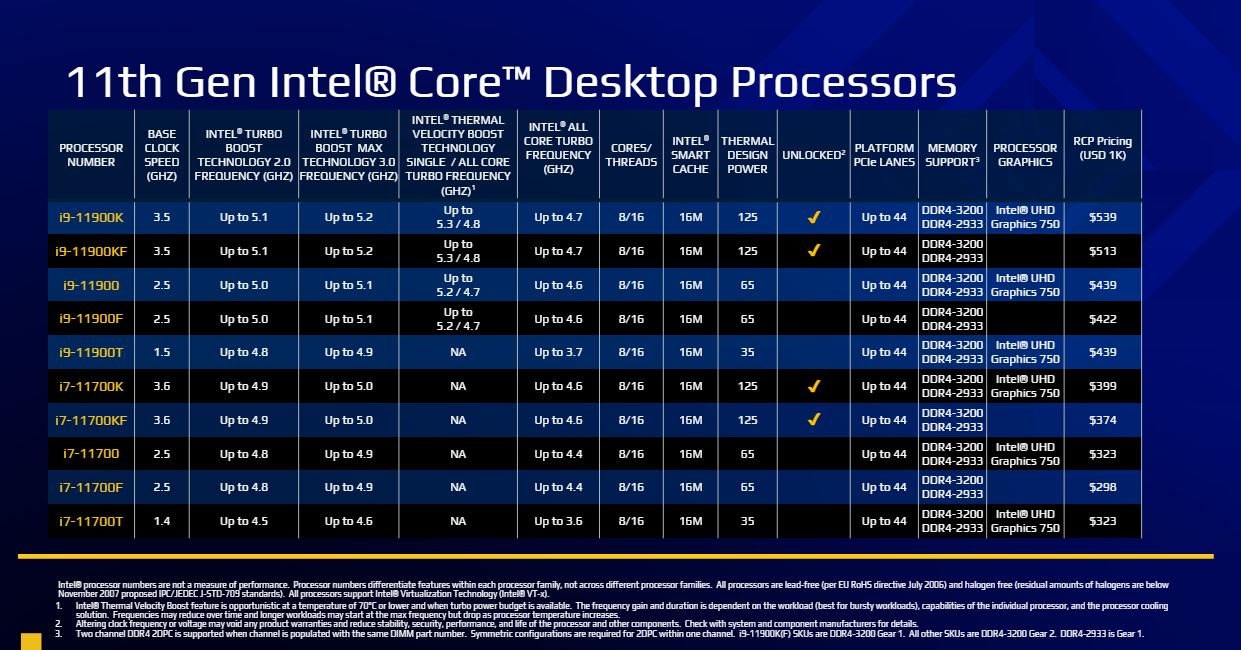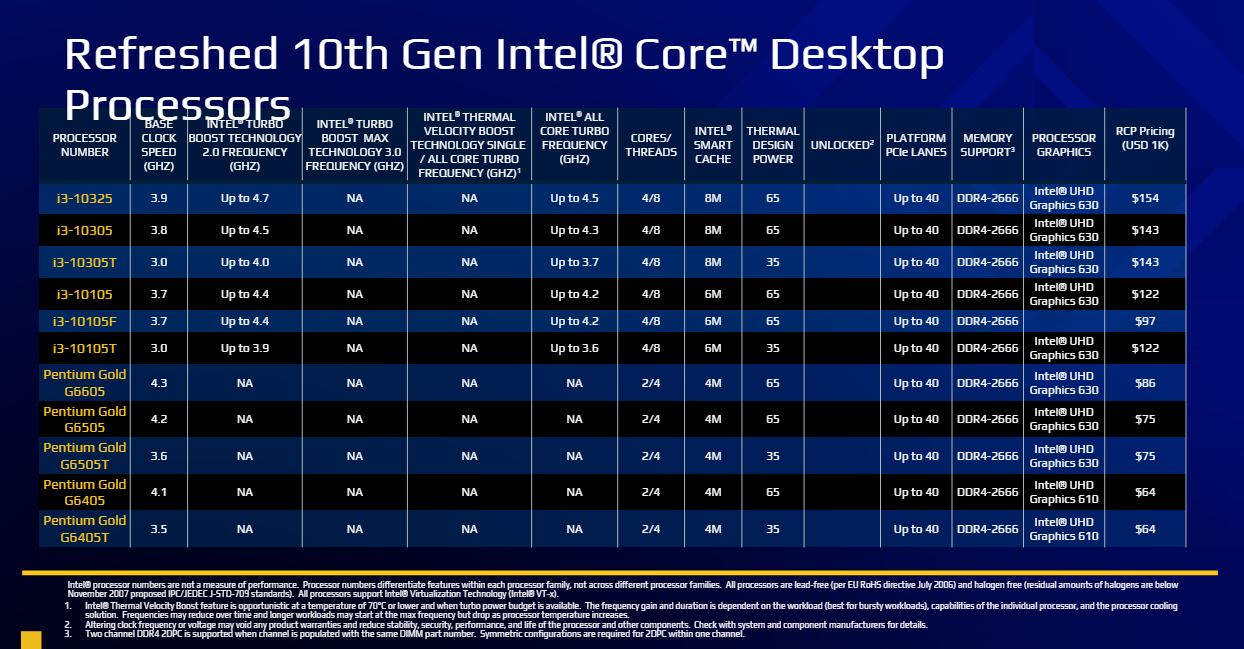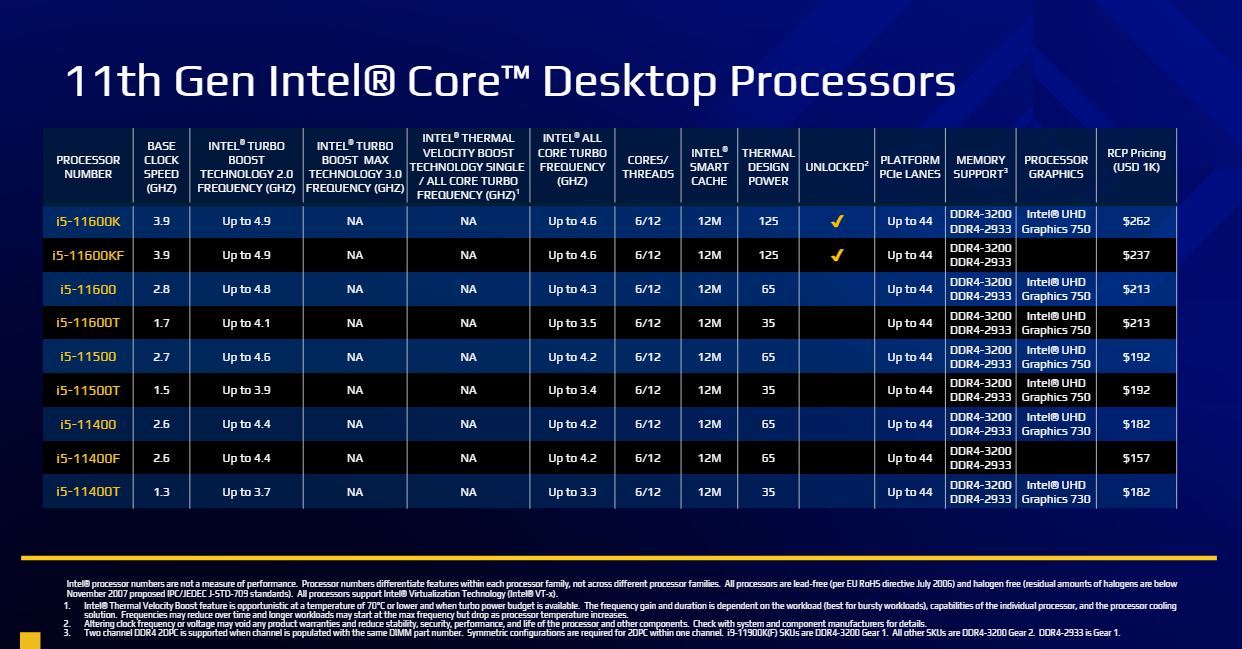Intel Details 11th-Gen Rocket Lake Desktop CPUs Led By Core I9-11900K
After revealing that 11th-gen Rocket Lake desktop processors were on the way back at CES 2021, today Intel revealed more about them. We've received details on all of the processors in the 11th-gen line – which includes pricing information – along with some benchmarks based on Intel's own internal testing. We're also receiving some information about the Intel 500 series chipset and even some of the overclocking features that will be found in these new CPUs.
Many of the Rocket Lake desktop features were revealed back at CES, such as the line's support for up to 20 CPU PCIe 4.0 lanes and boosted integrated graphics using the Xe architecture. The 11th-Gen Core processors use Cypress Cove cores and offer up to 19% gen-over-gen IPC performance improvement. Intel also says that Rocket Lake processors will ship with support for up to DDR4-3200 memory and support Resizable BAR, which is a new detail we're learning today. These processors are built using a 14nm process, which Intel says was necessary to be able to meet the clock speeds it was looking for.
While Intel's line of 11th-Gen Core CPUs ranges from the Core i5 all the way up to the Core i9, it's clear that the Core i9-11900K is the star of the show as far as the company is concerned, as it's at the center of most of Intel's benchmarks. While most people probably plan to use a discrete GPU to handle graphics-intensive tasks like gaming and rendering, Intel still looked at gaming performance in some of its figures. Gen-over-gen (compared to the Core i9-10900K), Intel says that that the 11900K shows a 13% increase in performance in Total War: Three Kingdoms and a 14% increase in Microsoft Flight Simulator, with smaller 9% and 8% increases in Gears 5 and Grid 2019, respectively.
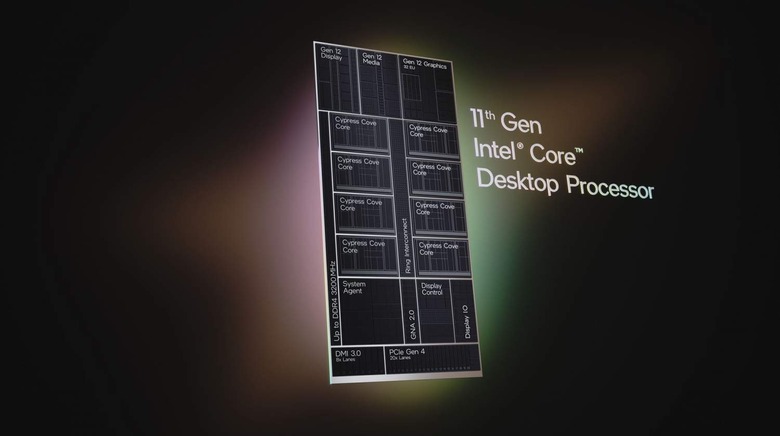
While that's a fairly nebulous benchmark, it is worth noting that these performance increases were observed with each game running at 1080p and at High settings, so it does sound like you can get away with doing some FHD gaming on Intel's integrated graphics. When compared to a competing processor – in this case the AMD Ryzen 9 5900X – the performance gains get a little smaller, with only a 10% improvement in Total War: Three Kingdoms with the same settings, and an 11% increase in performance in Microsoft Flight Simulator.
Of course, most of the performance gains are probably going to be found in video and photo creation, and when it came to a video editing workload in Magix Vegas Pro, Intel says that the 11900K offers up to 88% better performance gen-over-gen. With a 4K video editing workload in the same app, Intel saw as much as a 35% increase in performance against the Ryzen 9 5900X. Intel even shared some performance comparisons for the Core i5-11600K, saying that it's up to 61% better at 4K video editing over the Intel Core i9-10600K.
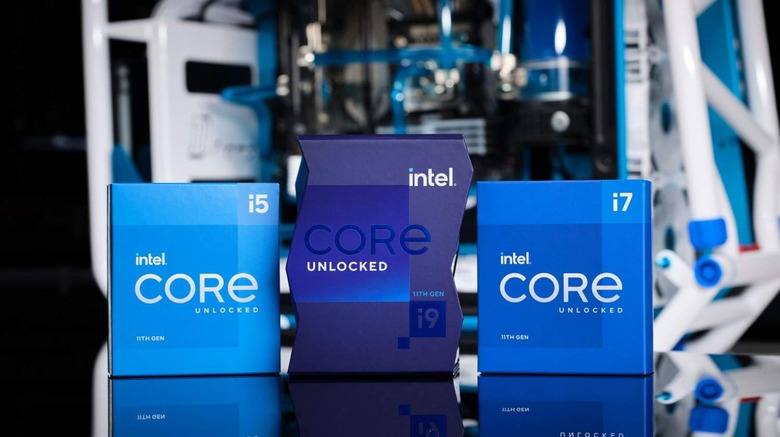
As is usually the case with these manufacturers' benchmarks, it's hard to get a grasp on just how much of an improvement these CPUs offer over their predecessors and competitors, and that probably isn't going to be clear until we see some comprehensive real-world testing. Still, judging from Intel's numbers, it seems that the 11th-gen CPUs offer some good performance upgrades at least in the realms of photo and video editing, so we'll look forward to seeing how they perform once they're out in the open later this month.
Intel also shared some new details about its 500 series chipset, which has been a fairly hot topic since it was announced earlier in the year. Some manufacturers have already announced boards featuring the 500 series chipset, and those should be compatible with 10th-gen Intel Core processors as well. In any case, Intel says that the 500 series chipset will support USB 3.2 Gen 2x2 at 20Gbps, which doubles connectivity speed over USB 3.2 Gen 2x1. The chipset also supports x8 DMI 3.0, which again doubles bandwidth between the chipset and the processor.
In the H570 and B560 chipsets, we'll also see support for memory overclocking, and we're getting some new general overclocking features as well. Intel's Extreme Tuning Utility is getting some usability and GUI enhancements that offer a fine level of control over a number of overclocking features, and Intel says that 11th-gen Core CPUs come with a new memory controller that has Gear 2 support. We'll also see a new feature called Real-time Memory Frequency that will allow users to move between non-overclocked and overclocked frequency "live in Windows" according to Intel.
All in all, it sounds like 11th-Gen Core processors are going to offer some decent performance increases, but we'll need to see them in action before we can make that call confidently. The line is scheduled to launch later this month, and you can see pricing and specification information for each 11th-gen CPU (along with specifications for Intel's refreshed 10th Gen Core lineup) in the gallery embedded above.

